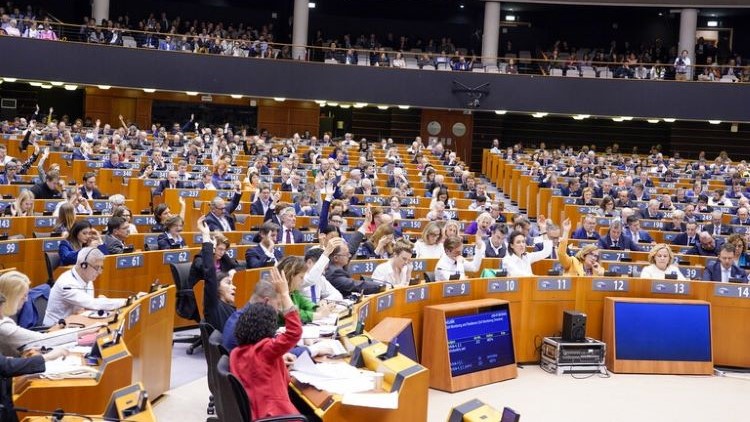The Diplomat
The Prestomedia Group presented yesterday in Madrid the report “A Spanish vision of the EU: 2024-2029”, an exhaustive study on Spain’s priorities for the future of the European Union, while committed to continuing to make “more Europe”.
The report, presented at the headquarters of the European Commission and the European Parliament, has been carried out by a group of prominent experts in European politics, under the direction of Ambassador Javier Elorza, who was permanent representative of Spain to the EU and main negotiator. by our country in the Union Treaties.
At the event, Lucas González Ojeda, acting director of the European Commission Office in Madrid, described the report as “absolutely relevant” and noted that “it can contribute to the direction that the strategic priorities” of the European Union should take.
After his intervention, Yago González, CEO of Prestomedia, stated that the study was born from the team of Objective European advisors and that it aims to be an essential element to continue building “a Europe for all.”
Journalist Jesús González, director of Canal Europa and Aqui Europa, said that the objective of the report is “to help build more and better Europe,” and led a session in which he delved into the content of the three chapters it consists of.
Institutional governance
The first of them has been prepared by the director of the study, Javier Elorza, who analyzes the “issues of institutional governance”, addressing the institutional reforms necessary in the face of EU enlargement, the importance of the move to qualified majority in key decisions and the urgency of peace in conflict regions such as Ukraine, Moldova and Georgia. The chapter highlights the need to reform the EU treaties to facilitate greater integration and cohesion, while maintaining Spain’s strategic interests.
In his speech at the event, Elorza was critical of the approach that speaks of the need to expand the European Union for strategic reasons and, in any case, he emphasized the need to reflect on the way in which the EU enlargement: “How is it going to be paid for? And how is it going to be done? It should not be done just any way, because otherwise the farmers and cohesion will end up paying for it,” he warned.
Thematic and sectoral study
The second part includes a “Thematic and Sectoral Study”, in which more than 15 experts have collaborated, such as Miguel Arias Cañete, Ramón Jáuregui or Nicolas Pascual de la Parte, among others, under the coordination of Francisco Fonseca, current director of the Institute. of European Studies at the University of Valladolid and who held different senior positions within the European Commission, the last as director of the Representation of the European Commission in Spain.
In this chapter, the strategic role of Spain within the EU is highlighted, advocating for a greener, digital, and socially just Europe. It also highlights Spain’s opportunity to influence the key challenges of Europe’s future, such as ecological transition, digitalization and economic and social cohesion, while emphasizing the importance of considering Spain not only as a partner. key economic, but also as a cultural and political bridge to Latin America and Africa.
Fonseca defended in the presentation that the report involves “thinking Europe in Spanish” and that it raises “key questions at a key moment.” Furthermore, he pointed out that this part of the report aims to show “the need of the Spanish people” and “what remains to be done” in the EU, placing Spain as a key State for the community’s future.
Prospective analysis
The last part of the study is a “Prospective Analysis”, supervised by María Luisa Humanes, vice-rector of International Relations at the Rey Juan Carlos University and which provides a vision of the future based on the opinion and attitude of Spaniards towards the EU. This chapter reveals strong support from the Spanish population towards greater European integration, although with nuances in certain policies. This analysis points towards a Europe that values democracy, solidarity and inclusion as foundations for facing future crises and global challenges.
María Luisa Humanes explained that, with this chapter, which she defines as open, she aims to “go beyond the data of how Spaniards feel in the EU,” as well as expose the social challenges that the EU faces, from a Spanish look.
The report concludes with a call to action to strengthen the position of Spain and, therefore, of the European Union on the world stage. European leaders are urged to adopt a shared vision that balances integration and diversity, strengthens institutional governance and promotes a more cohesive and strategic common foreign and security policy.







